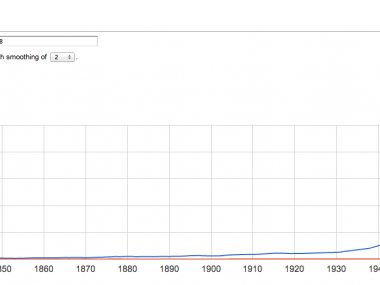The -Bait Suffix Trend: Linkbait. Clickbait. What’s Next?
Linkbait, clickbait, crybait, Oscar bait. Have you noticed a trend? How did we get here?
A week ago, Mark Naimark coined the term quizbait and asked me to help him launch it as a word. I thought it seemed appropriate, in the same vein as linkbait and clickbait, and didn’t think much more of it—until I came across two more new -bait words during my random weekly reading.
Crybait
Mary Elizabeth Williams, writing about the “world’s toughest job” viral video for Salon, referred to crybait:
And if you can’t see where this is going already, you just haven’t been exposed to enough online crybait.
Following links, I see that she used the term in an article from November of 2013, so it’s not a term that just popped up last week. Last week was just the first time I had encountered it.
Likebait
Evan LePage, writing about Facebook for the HootSuite Blog, referred to like-baiting:
A person or business explicitly requesting likes, shares and comments to increase the engagement around their Facebook posts, without actually providing any content of value. Well Facebook dubs these types of posts “Like-Baiting” . . .
Oscar Bait
Perhaps the trend is not as new as I thought. Searching Slate, I found an article by S.T. VanAirsdale from December of 2012 that used the term Oscar bait:
Yet there’s nothing at all empty or foolish about the phrase Oscar bait, which movie critics and pundits have long applied to the types of films developed, funded, and produced for the express purpose of pursuing gold-plated glory.
Link Bait and Click Bait History
Linkbait appears to be an older term than clickbait. A Google Ngram search had hits for link bait starting in 2003. None of the early hits used the term in the way we mean it today though—to be designed to attract Web links. Hits with those meanings started appearing around 2007. An entry for link bait appears in the Urban Dictionary one year earlier, in late 2006. Clickbait doesn’t seem to appear in the Google Books database until around 2012. The earliest entry in the Urban Dictionary for click bait is also from 2012.
A search of the Corpus of Contemporary English (COCA), which includes texts up to summer of 2012 does not return anything for click bait, click bait, link bait, or linkbait; but a search of the Global Web-Based English (GloWbE) database, which has text from webpages available in 2012 and 2013 from 20 countries, does return results for click bait, clickbait, link bait, and linkbait. (The difference could be the result of the different kinds of texts included in the two databases.)
Neither COCA nor GloWbE returned anything for crybait, cry bait, quizbait, or quiz bait. Hits for like bait were not for the meaning “a post meant to garner social media likes.”
Formatting
Although my word processor wants to change crybait and linkbait to two words, note that Williams wrote crybait as one word, just as Naimark wrote quizbait as one word. The online Buzzfeed style guide recommends writing words that end with -bait as closed compounds—one word.
Formatting does not appear to be a set matter for these words, however. Click bait and link bait can be found as one word and two on the New York Times website (two words more often than one), and LePage hyphenated like-bait on the HootSuite Blog. Perhaps because Oscar is a proper noun, Slate stuck to two words for Oscar bait.
What are other -bait words you’ve heard that I missed?
You May Also Like…







